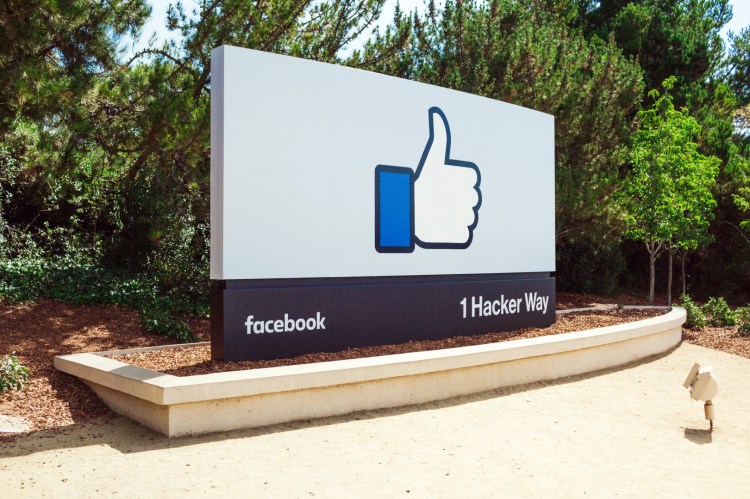Facebook is shifting away from using “total installs” — an industry metric that advertisers and developers have known for a while — as a measurement for how successful its app business is. In its efforts to court more advertisers, the social media company realized that marketers are more interested in conversions and action taken within apps. So Facebook said it’s now going to be emphasizing value-based app ads products instead.
Since 2012, mobile app install ads have been available on Facebook. As the name implies, the goal is to market an app to you and get you to install it on your device. Think of it like Google AdWords, but specifically geared toward developers looking to market their work. And Facebook and Google have been vocal about touting the success of their respective platforms in an effort to curry favor with developers. In August, Google announced that its service helped drive 3 billion app installs in 2016, while Facebook had 2 billion.
As for where things currently stand, Facebook declined to comment, but a source told VentureBeat that the company is seeing an uptick in activity, with the total number of installs “doubling” in the last year, which could make the number around 4 billion.
Even if the social media company is shifting away from focusing on total installs, it’s not abandoning developers who see user acquisition as their primary goal. “If you’re a newer or emerging app business, the portfolio of products we have to drive installs is robust. Whether through targeting, creative, inventory, or measurement tools, there’s a lot of options if that’s the state you’re in,” said Christine De Martini, Facebook’s product marketing lead for customer acquisitions.
June 5th: The AI Audit in NYC
Join us next week in NYC to engage with top executive leaders, delving into strategies for auditing AI models to ensure fairness, optimal performance, and ethical compliance across diverse organizations. Secure your attendance for this exclusive invite-only event.
She described the current environment as akin to a Where’s Waldo? in that developers who are looking to promote their app often find it difficult to locate the right person. “How do you cut through and make sure your app is installed by the right person that will find value in the app and return?” De Martini asked, while pointing to a statistic stating that after 30 days only 6 percent of users are retained.
“In thinking about growth trends, we need to do our part to maximize the opportunity so we can [help developers] grow their business with the right customers,” she said. “It’s very common now for revenue to come from purchases, engagement within apps where you’re served ads or [do actions] post-install. Revenue is now coming from post-install models.”
According to De Martini, most developers today are measuring performance by revenue, not by install count. With billions of installs driven, it’s clear that Facebook and Google have at least achieved critical mass and both are forces of nature when it comes to app marketing. But instead of engaging in a tit-for-tat with competitors over whose metric is bigger, Facebook is electing to take the high road and believes the industry will benefit if there’s a push toward action-oriented solutions.
And Facebook has the pull to make this change — it revealed that 80 of the top 100 apps in the Google Play and App Store are using what it calls its “value-based ad products.” One of these products is app event optimization, which launched in 2016 across Facebook, Instagram, and participants in the Audience Network. Developers and advertisers can use this tool to deliver their mobile app install ads to those who are “likely to take valuable actions within their apps,” such as adding an item to their shopping cart, making a purchase, or completing a level.
Eric Ma, vice president of user acquisition for gaming company Scopely, said in a statement: “…We’ve continued to generate profitable growth leveraging Facebook’s optimization to valuable downstream actions such as purchases, instead of just installs. Since we adopted App Event Optimization, we have seen a 50 percent increase in our Return on Ad Spend within the first seven days post install.”
De Martini also highlighted worldwide targeting and app remarketing as two other tools available to advertisers. The former was introduced last year for app developers looking to expand into other countries and wanting to find similar audiences. Facebook says that worldwide targeting makes it easier to find lookalike users across multiple countries simultaneously, eliminating overhead and time spent researching. With app remarketing, developers want ways to re-engage those who may have installed their app but then let it fall by the wayside. This tool will reach out to app users based on any actions they may have taken or not taken, encouraging them to give the app one more shot.
“We believe focus is bringing people to value,” De Martini said. She described the industry as reaching a point of critical mass and undergoing an evolution, moving from installs to pushing conversion and action-based marketing. “It’s what developers are asking for. We see an opportunity to be a leader in the space…84 percent [of app developers] are focused on revenue.”
With Facebook’s transition away from touting aggregate install numbers on its platform, eyes will likely shift to what’s next. After all, advertisers, developers, and even investors will be wondering what metrics, numbers, and tools the company will parade out to reinforce its momentum. De Martini declined to share future plans, except to say: “I’m excited about the potential of the value focus. We’re planning to extend the approach to other direct response [products].”



